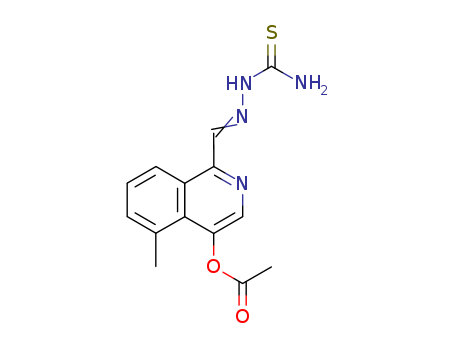- Chemical Name:1-(2-(Aminocarbothioyl)carbohydrazonoyl)-4-methyl-5-isoquinolinyl acetate
- CAS No.:171880-39-0
- Molecular Formula:C14H14N4O2S
- Molecular Weight:302.357
- Hs Code.:
- NSC Number:687304
- ChEMBL ID:CHEMBL1985160
- Mol file:171880-39-0.mol
Synonyms:NSC687304;NSC 687304;171880-39-0;1-(2-(Aminocarbothioyl)carbohydrazonoyl)-4-methyl-5-isoquinolinyl acetate;CHEMBL1985160;NSC-687304;[1-[(E)-(carbamothioylhydrazono)methyl]-4-methyl-5-isoquinolyl] acetate;Hydrazinecarbothioamide, 2-[[4-(acetyloxy)-5-methyl- 1-isoquinolinyl]methylene]-




